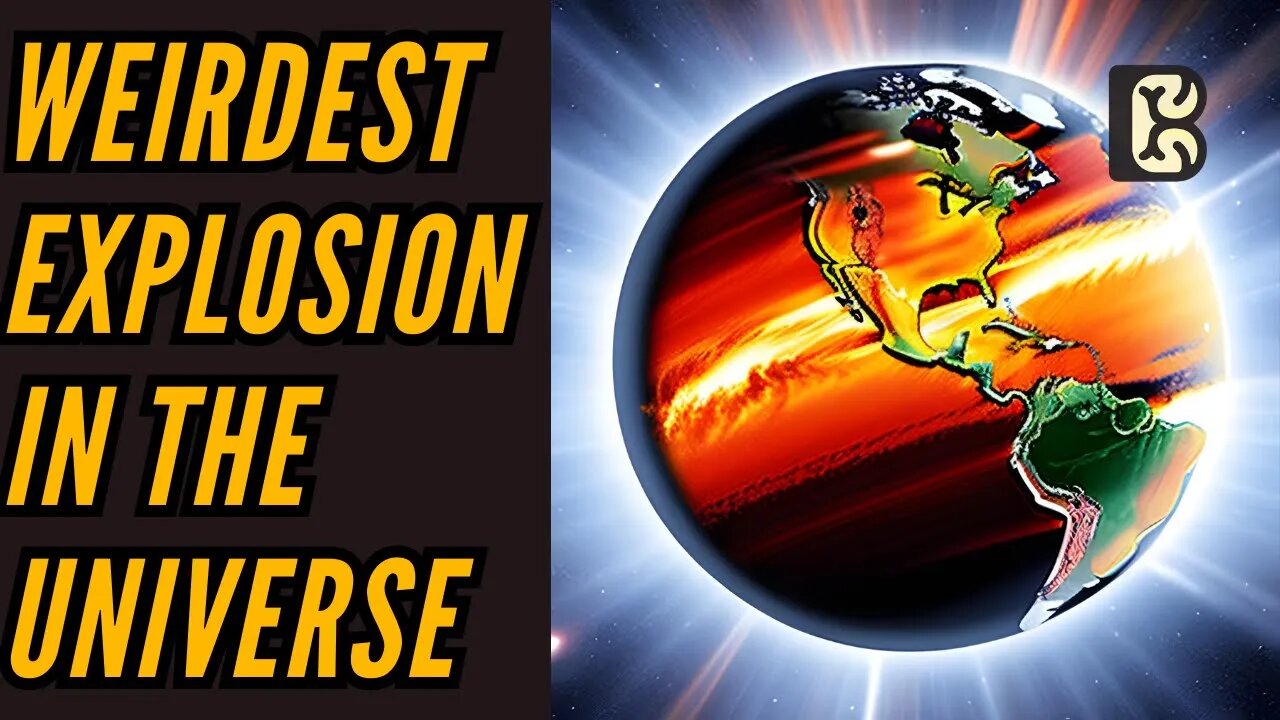Premium Only Content

"Mind-Blowing Discovery: Astronomers Observe Explosions in Space That Challenge Our Understanding!"
In a recent discovery, astronomers have observed an explosion 180 million light-years away that challenges our current understanding of explosions in space. This rare class of explosion, known as Fast Blue Optical Transient (FBOT), is much rarer than other explosions such as supernovae. This explosion was the most aspheric ever seen in space, with a shape like a disc emerging a few days after its discovery. Scientists believe that the recorded degrees of asymmetry could be a key element in understanding these mysterious explosions and challenging our preconceptions about how stars in the universe might explode.
Using the Liverpool Telescope, astronomers were able to measure the polarization of the blast, allowing them to reconstruct the 3D shape of the explosion and map the edges of the blast. The Liverpool Telescope's mirror is only 2.0 m in diameter, but by examining polarization, astronomers were able to reconstruct the shape of the explosion as if the telescope were about 750 km in diameter. This new discovery may help shed some light on FBOT explosions and provide a better understanding of them.
This discovery is significant because it challenges the existing knowledge of explosions in space and may lead to new insights into the behavior of stars in the universe. By understanding FBOT explosions, scientists may be able to gain a better understanding of how stars explode and the evolution of galaxies. This discovery also highlights the importance of new technologies and telescopes in unlocking the secrets of the universe.
#SpaceExplosions #FBOT #AstronomyDiscovery #LiverpoolTelescope #AsymmetricExplosions #ChallengingOurUnderstanding #UniverseMysteries #GalaxyEvolution #AstronomyNews #ScienceExploration #space #universe #universeadventure #supernova #exploration #science #fbot #spaceexploration #discovery #explosion #flattestexplotion #weirdest #solarsystem #stars #neutronstars #astronomy #newdiscoveries #newdiscovery #astronomers
-
 1:19:53
1:19:53
Barry Cunningham
7 hours agoBREAKING NEWS: PRESIDENT TRUMP RE-OPENS THE UNITED STATES GOVERNMENT!
42.1K18 -
 20:47
20:47
The White House
7 hours agoPresident Trump Signs Senate Amendment to H.R. 5371
34.2K33 -
 4:37:57
4:37:57
Drew Hernandez
1 day agoNEW EPSTEIN EMAIL DROP FULLY POLITICIZED
59.4K20 -
 1:44:01
1:44:01
Tucker Carlson
6 hours agoTucker Carlson on the Israel First Meltdown and the Future of the America First Movement
65.9K424 -
 4:02:08
4:02:08
Alex Zedra
7 hours agoLIVE! Phasmaphobia New Map!
55.4K2 -
 2:16:06
2:16:06
Laura Loomer
8 hours agoEP155: Jihad Makes Its Move On The White House
47.3K63 -
 2:18:47
2:18:47
TheSaltyCracker
8 hours agoDem's Epstein Drop Backfires ReeEEStream 11-12-25
109K218 -
 17:08
17:08
Demons Row
8 hours ago $5.50 earnedMost Dangerous Motorcycle Clubs That Ever Existed 💀🔥
38.2K4 -
 12:51
12:51
The Gun Collective
10 hours agoWOW! -- LOTS of new GUNS just came out!
19.4K10 -
 2:06:53
2:06:53
I_Came_With_Fire_Podcast
17 hours agoWhat IS America First | Al Qaeda in the White House | China's Spy Highway
16.1K5